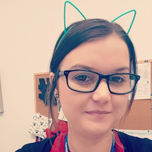The RSPCA Op Shops receive truckloads of donations each year for resale in our stores. Unfortunately, many items are not able to be resold but are not so damaged that they cannot be useful in other ways. Before throwing in the towel (pun intended), our op shop volunteers get creative and take action to reduce and reuse. This quite often results in a positive impact on the lives of others in our local communities and overseas. Bonus! Do you have pre-loved items you'd like to donate to our Op Shops? Find your nearest RSPCA Op Shop location here.
A large amount of the donations fall into the textile waste category which includes; clothes, bedding, towels and more. All of which would normally go to landfill and cause significant issues for the environment. When reusing, our first point of call is our RSPCA adoption animals who make good use of what they can as flooring, bedding, DIY toys and more! Just as close to home, our op shops donate preloved clothing items to local community and support groups for reuse. But not all of it can go through these channels and with limited resources the RSPCA Op Shops alone cannot reduce waste, assist communities, and continue to raise funds for animal welfare. That’s a job for a superhuman! The solution comes in the form of a third-party company who has helped us to implement a textile waste management system. On average, our op shops will see approximately 100,000kgs of textile waste per year collected by this third-party company; who specialise in sorting and supplying quality second-hand clothing to overseas markets. These markets provide clothes to communities in Europe, Papua New Guinea, Fiji, Solomon Island, South Korea, Western Africa and more. By working together, this arrangement has reduced the amount of waste going to landfill, given a new life to your preloved donated clothing items, and helped others who would otherwise have been unreachable to us.
Reusing and reducing waste is a growing message in society and in our RSPCA ethos. So when we are approached by businesses, community groups and student groups to provide material for sustainability focused workshops and projects, our team are happy to help where we can. In the past, our RSPCA Op Shops have provided Boomerang Bags with donated t-shirts for a no-sew-t-shirt bag workshop during Brisbane Youth Week. More of our textile waste has also been reused and upcycled in events such as, the Eco Fair run by Live For Less and Brisbane City Council’s Revive Pop-up Second-hand Fashion Festival; where Boomerang Bags once again coordinated workshops that aim to move us toward a more sustainable future.
Visit us at this year's Revive Fashion Festival - Saturday 17th August, 2019.
Reverse Garbage have assisted in diverting some of our textile waste by reusing it in workshops for both schools and adult groups. One such workshop was at last year’s Revive Fashion Festival, where Reverse Garbage held a tote bag workshop to encourage people to reuse old t-shirts and reduce the use of plastic bags.
Both Jeanbag and QUT Fashion Society have been breathing new life into preloved denim items that our op shops are not able to resell. Jeanbag does a fantastic job at reviving jeans into homeware items such as beanbags and cushions. While the QUT Fashion Society revived denim items at last year’s Revive Fashion Festival; showing how denim can be repurposed for another life.

Textile donations aside, books come through our donation channels in all forms and conditions and our op shop teams often find ways to reuse or recycle where possible. For instance, residents at local aged care facilities reuse partially completed, or clean colouring books and puzzle books. Local libraries also use colouring books and sticker pages for children’s activities. Books, as well as, toys and medical supplies are sent to communities in Papua New Guinea for use. Local schools use excess children’s books in parent-child reading groups; to encourage co-learning and improve literacy. Local correctional facilities use text books that are no longer current and other educational books to offer educational opportunities.
Many people collect hygiene, toiletries and cosmetic items which eventually are donated to our RSPCA Op Shops. These items are not able to be resold by our stores and rather than send them to landfill, some of our stores donate these to support groups and refuge centres. Items like these may be distributed to women who don’t have access to these types of items, or to homeless support centres as hygiene packs. Similar to these hygiene items, kitchenware and basic household items are often handed on to community groups who support victims of domestic violence, homelessness or the disadvantaged. The items become household starter kits and assist people to settle into new homes.
There are some donated items that really require some imaginative thinking in order to reuse or recycle them. Within our op shop communities, we have individuals who dismantle donated computer products and reuse the parts where possible, a beautiful animal carer who looks after baby ducklings and uses old portacots to home them, and a community group that uses donated golf clubs to teach at risk kids and teenagers how to play golf.
By reusing where possible, reducing what goes to landfill, and recycling to give items new life, it is possible to make a positive impact on the environment while also paying it forward to local and global communities. The RSPCA Qld Op Shops are dedicated to helping where we can with the resources that are available to us.
By reusing, reducing and recycle we hope to make small changes with big impacts.
Other RSPCA Op Shop News:
You can now visit our new RSPCA Op Shop at 116 Bundall Rd, Bundall!

100% of profits from our RSPCA Op Shops go towards helping domestic and wild animals in need.









